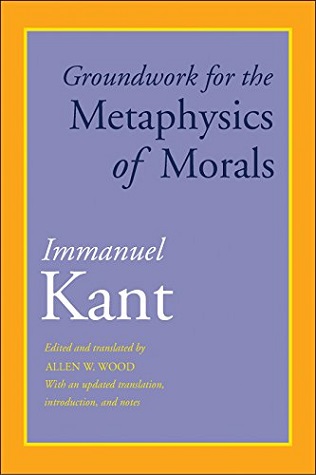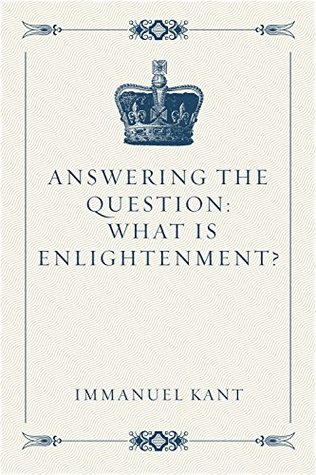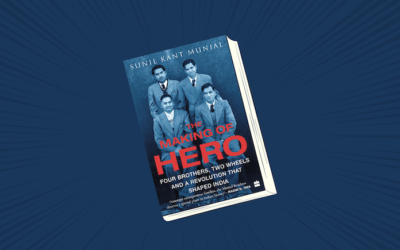Essay
How Reading Kant As A Teen Changed My Life
Philosophy has always held a special place in my heart. And while I’m aware that it is not exactly a popular choice, it continues to be a field of study that fascinates me.
From questioning God’s existence to considering the meaning of happiness, philosophers have always asked the big questions. What does it mean to be human? How does the human mind work? These were questions that I had also asked myself for years. So, it was only natural that I was hooked from the moment I stepped into my first philosophy class.
What Would Kant Do?
One philosopher whose words particularly resonated with me was Immanuel Kant.
In the 10th grade, our teacher explained how philosophers have different ways of defining what is good and what is bad. We, then, went on to learn about Kant’s moral views, and his stand on ethics.
Kant explored his views on ethics in 1785 in a book called Groundwork For The Metaphysics Of Morals. In this work, he is focussed on finding a principle that one can apply as a rule to judge if an action is moral or immoral. In other words, the principle would help distinguish a good action from a bad one. For Kant, the most important thing to consider is the motivation behind an action. Were the person’s intentions good or was there some obscure goal behind it?
Kantian morals are built on the idea of human dignity, that is, treating people with respect. This is noticeable in the second formulation of Kant’s categorical imperative that urges us to enhance our empathy by acting in a way where we treat people fairly, not because we want something in exchange, but simply because that is the right thing to do.
This principle resonated with me. It made me understand how I had often been quick to judge and had ended up hurting people.
These days, whenever I’m in a situation where my first instinct is to attack the other person (due to feeling hurt or betrayed), I try to hold back and ask myself: What is it like to be that person? What is s/he feeling right now?
It is safe to say that adhering to Kant’s humane lessons, has helped me survive heartache, career changes, and losing friendships with flying colours.
Daring To Know
For me, studying philosophy was both a joy and a challenge. I had to write essays on complex subjects, voice my opinion on moral dilemmas, and understand the differences between logical reasoning and fallacious arguments, all of which were difficult for a teenager completely unaccustomed to this type of in-depth study.
However, it also brought me an unexpected amount of pleasure. I was surprised that I didn’t find philosophy dull, like everyone had said. In fact, I found the subject so engaging that I started applying the lessons I’d learnt from Kant into my daily life.
Whenever I watched politicians giving speeches on TV, for example, I’d analyse the logic behind their arguments. Were they using deduction, or induction? Were they using faulty reasoning to convince the audience they were telling the truth? What made them seem trustworthy in our eyes?
One of Kant’s works that inspired me, in particular, was his famous 1784 essay Answering The Question: What Is Enlightenment? Here, Kant explains how there are very few enlightened people. According to him, the majority of us are not using our full thinking abilities; we are simply following the guidelines of others, institutions and individuals alike. They are the ones informing us on what we should think.
This idea was a revelation to me. I soon realised how some people use language and reasoning to regurgitate things they’d heard elsewhere without understanding a single word of what they are saying. I did not want to do that. I wanted to follow Kant’s advice and start thinking for myself, and express my own opinion, even if it wasn’t a popular one.
I also started noticing how other authors drew inspiration from Kant, such as the political theorist Hannah Arendt. In her book, Eichmann In Jerusalem, Arendt explains how Eichmann used Kant’s teachings to persuade people that he had done nothing wrong during World War II. After reading her reports on this trial, I couldn’t help but admire how Arendt applied Kant’s lessons, while staying true to herself and her belief that we all have a moral choice, no matter how difficult our circumstances might be.
Of course, it is not always easy to voice your thoughts. I was afraid to be wrong or shamed by others, but as Kant eloquently puts it in his essay Answering The Question, the art of thinking requires bravery. So, sapere aude would now be my motto.
(Immanuel Kant; Image via Literary Hub)
Building Self-Esteem
I was what adults liked to call ‘a serious child’ – always reserved, often alone, and a bookworm through and through. It wasn’t that I didn’t enjoy talking, I just preferred meaningful conversations on topics that interested me, something that remains true till date.
I was also serious about learning. I was that person in class who fact-checked whenever a teacher said something inaccurate. I was the one who got frustrated with my classmates when they were careless with their work during group projects. I wanted the truth, I wanted time to digest what I had learned, and I wanted to keep on discovering new things.
At the time, I wasn’t aware this was my way of being in the world. Due to this, I felt out of place and insecure. Being a ‘nerd’ wasn’t considered cool, so I felt alone in my love for knowledge. I believed I was the only one dissatisfied with a system of education that encouraged memorisation over learning. Philosophy, however, made me feel as though it was acceptable to be curious and to question things. After all, the work of philosophers is to question our reality and dismantle our preconceived notions about the world, beauty, ethics, freedom, etc.
After reading Kant’s Answering The Question, I felt as though he had welcomed me into a place where curiosity was celebrated. Kant pleaded everyone to continue to strive for knowledge, reason and understanding in a world that so often prefers to ignore it.
Reading about Kant’s enthusiasm for knowledge made me feel less alone. As a result, I became increasingly more comfortable in my own skin and started to slowly build up my self-esteem.
This lesson in self-love from Kant was simple: stop searching for approval and you will find respect. As he wisely affirms, ‘One who makes himself a worm cannot complain afterwards if people step on him.’
That, then, became my mission: to be comfortable with myself, my likes and dislikes, and to continue being the bookworm I had always been without fearing judgement from others.
—
Kant’s words changed me. His teachings made me a more compassionate person, a more enthusiastic learner and a less awkward teenager. I look back on my school days and see my experience with philosophy, in general, and Kant, in particular, as proof that books are special. For even in this era of technology, they still have the incredible power to change our lives.

Andreia is a Portuguese freelance writer and ballet enthusiast in love with pretty books and untranslatable words. When not writing, she can be found with her nose stuck in a book, perfecting her French, or dreaming about the Swiss Alps. Travel pet peeves include having to narrow down which books to pack in her suitcase. Follow her adventures on her blog and Instagram.
You can read her articles here.







